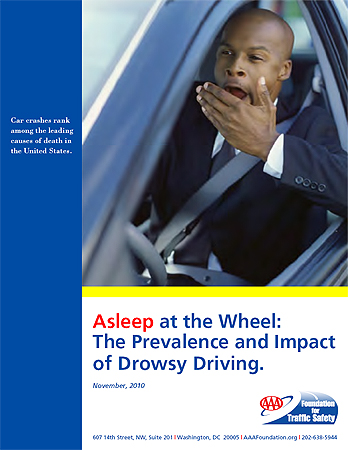
Driving under the influence is a crime that has generally remained the same over the years. The elements are basically that the defendant was: 1) driving and 2) under the influence.
While the elements of the offense remain unchanged, the penalties for DUI change every year. And they change in only one direction, they are increased. Fines and court costs increase, community service requirements increase, treatment hours increase, offenders have to install breathalyzers in their vehicles, etc.
But soon, Illinois courts will see a new type of DUI charge. Illinois prosecutors will file charges against motorists for drowsy driving.
In New York, a bus driver is standing trial for killing 15 people in an accident caused when he fell asleep at the wheel due to lack of sleep.
The defendant in this case, Ophadell Williams, was driving a bus on what prosecutors said was just a few hours of sleep when it crashed in the early morning hours, killing 15 passengers. He faces up to 15 years in prison if convicted of manslaughter and criminally negligent homicide.
Make no mistake, this is the beginning of a movement that will find its way inside Illinois courtrooms.
All law is politics. The most recent developments in DUI and traffic courtrooms have come from politics.
- Speeding more than 30 mph over the limit became a Class B misdemeanor after the Chicago Tribune criticized Cook County judges for leniency on speeders. The same legislation made convictions mandatory for speeding 40 mph over the limit.
- Supervision will be prohibited for any speeding ticket of 25 mph over the limit starting July 1, 2013. Lawmakers increased speeding penalties in response to public outcry after a fatal accident in the suburbs.
All it will take is one fatal accident in the Chicago region caused by a sleepy driver for politicians eager for re-election to draft legislation criminalizing sleepiness.
Drowsiness has also been cited in criminal cases against drivers in more than half-a-dozen other states, including Florida, New Jersey and Texas. In Virginia last month, a bus driver was convicted of involuntary manslaughter; authorities said that he fell asleep before a crash that killed four passengers and injured dozens of others.
The danger of legislation like this is that it incarcerates people for negligence. It is a long-standing principle in US courts that negligence cannot be punished with criminal sanctions.
But advocacy groups are readying to overturn this precedent either in appellate courts or in state legislatures. The AAA Foundation for Traffic Safety calls drowsy driving “one of the most significant, unrecognized traffic safety problems.” Read their report on drowsy driving.
Even prosecutors have publicly acknowledged that these charges are inevitable:
“I would not be surprised based on everything that’s now available to investigators and prosecutors to see more of these cases being charged,” said Joanne Thomka, director of the National Traffic Law Center of the National District Attorneys Association.
At the present time, a prosecution for a fatal accident would be based on 720 ILCS 5/9-3, the involuntary manslaughter and reckless homicide statute. The statute says that when a person kills another while operating a motor vehicle, it is called reckless homicide:
A person who unintentionally kills an individual without lawful justification commits involuntary manslaughter if his acts whether lawful or unlawful which cause the death are such as are likely to cause death or great bodily harm to some individual, and he performs them recklessly, except in cases in which the cause of the death consists of the driving of a motor vehicle or operating a snowmobile, all-terrain vehicle, or watercraft, in which case the person commits reckless homicide.
Reckless homicide is a Class 3 felony punishable by 2-5 years in the Department of Corrections. It is a probationable offense, but there is immense pressure on the court to sentence the accused to prison because of the victim’s death.
The reason Springfield lawmakers will probably draft a bill criminalizing drowsy driving is that the reckless homicide statute does not always apply in these situations. Drowsy driving may be negligent, but not it is not necessarily reckless. The Illinois Vehicle Codes does not yet have a negligent driving statute, and this would be the impetus for such a change.
If or when this bill is drafted, the question is, when is a person guilty of drowsy driving? It is not like the legal limit for alcohol of 0.08. There is not test to determine when a person is too sleepy to drive safely. Everyone has a tolerance for fatigue.
But like many cases in criminal courtrooms, the rights of the accused to due process may not be the highest priority where prosecutors have victims who lost their lives. When that happens, charges are filed and prison is sought, regardless of fairness.

